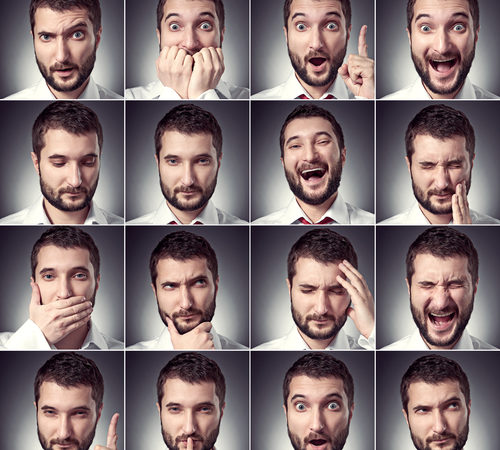
Joy and Sorrow Unexplained Behavior- ACEs
Ever wonder why you have unexplainable bouts of intense joy, sorrow or even anger? Where did it come from?
Maybe you wonder about what seems to you (or to others) that you are indulging in “childish” behavior sometimes. Wonder no more. Wordsworth had a line in his poem, My Heart Leaps Up, “the child is father of the man” as he, like you, effuses joy at the site of a rainbow.
What does this mean, good or bad?
Without getting into classic Freudian theory, there is a phenomenon termed, ACE (Adverse Childhood Experiences). ACEs can influence children’s developing brains so profoundly that the effects show up decades later; they cause much of chronic disease, most mental illness, and are at the root of most violence.
“ACEs” comes from the CDC-Kaiser Adverse Childhood Experiences Study, from 1995 to 1997, published in 1998, a groundbreaking public health study that discovered that childhood trauma leads to the adult onset of chronic diseases, depression and other mental illness, violence and being a victim of violence.
The ACEs researchers measured:
Physical, sexual and verbal abuse, physical and emotional neglect, a family member who is: depressed or diagnosed with other mental illness; addicted to alcohol or another substance; in prison; witnessing a mother being abused, losing a parent to separation, divorce or other reason, witnessing a sibling being abused, witnessing violence outside the home, witnessing a father being abused by a mother, being bullied by a classmate or teacher – but only 10 types were measured. They provide a useful marker (a guide) for the severity of trauma experienced. Other types of trauma may have a similar impact.
The ACE Study revealed five main discoveries:
- ACEs are common…nearly two-thirds (64%) of adults have at least one.
- They cause adult onset of chronic disease, such as cancer and heart disease, as well as mental illness, violence and being a victim of violence
- ACEs don’t occur alone….if you have one, there’s an 87% chance that you have two or more.
- The more ACEs you have, the greater the risk for chronic disease, mental illness, violence and being a victim of violence.
- ACEs are responsible for a big chunk of workplace absenteeism, and for costs in health care, emergency response, mental health and criminal justice. So, the fifth finding from the ACE Study is that childhood adversity contributes to most of our major chronic health, mental health, economic health and social health issues.
(acestoohigh.com/aces-101/, see the 10 ACE questions and 14 resilience questions at acestoohigh.com/got-your-ace-score/)
Thirty years ago, the Nobel Prize-winning novelist Doris Lessing gave a series of lectures, 1985, and later published in a book, “Prisons We Choose to Live Inside,” in which she reflected on the brutality in the world and asked how individuals and societies could evolve into something better.
It’s a sobering book, but Lessing is hopeful — and her main source of hope stems from the capacity of human beings to study themselves and learn from their own behavior.
Susan Beaulieu, University of Minnesota Twin Cities, “Usually, we’re so focused on the symptom level — addiction, abuse, disease,” she added. “The ACEs knowledge is helping us step back and see what’s driving these things and what we can do about it. And it shifts the conversation from, ‘Are you a good or bad person?’ to ‘What happened to us when we were growing up and how has this translated to our own parenting?’ ”
(David Bornstein, Putting the Power of Self-Knowledge to Work, FIXES, NY Times, AUG. 23, 2016)
Lessing, “We know more about ourselves now than other people did in the past, but very little of this knowledge has been put into effect.”
This is where Counseling on Demand comes in. Our counselors are there for you to guide you through the 10 ACE questions and the 14 Resilience ones and to show you what to do about being the person (and parent) you want to be.
We are online at CounselingonDemand.com
We are only a click away